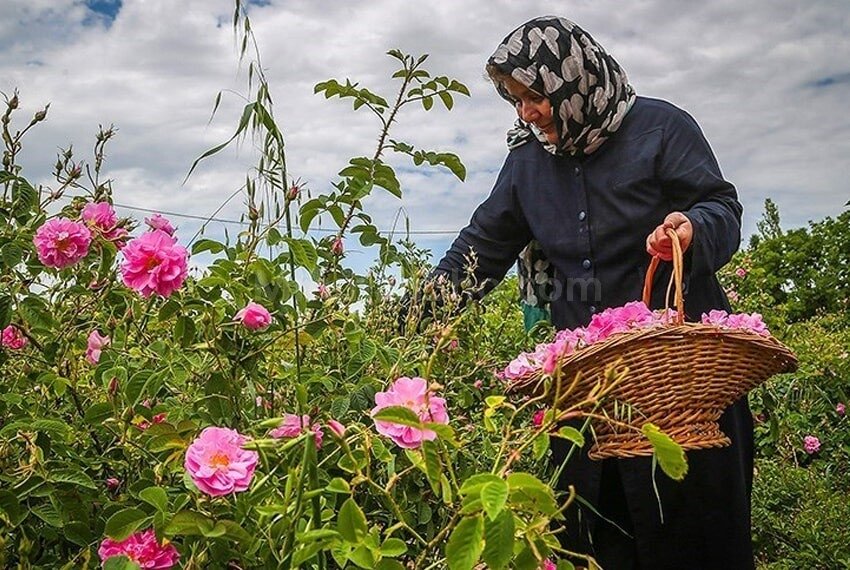Agritourism: Hamedan village to host rosewater festival

TEHRAN – To enrich its agritourism sector, a village in Hamedan province will be holding a public festival dedicated to damask roses for the first time.
Soltanabad village of Hamedan will hold a rosewater festival in a bid to develop its agritourism potential, attract more travelers and boost tourism revenues, CHTN quoted a local tourism official as saying on Friday.
Agricultural tourism is a new branch that those interested in this field can create a new income for themselves along with cultivation, the official said.
“The tourism industry is one of the most effective and important areas in job creation and income generation after oil and the automobile industry in the world, which can create permanent and stable employment with minimal investment.”
Traditional competitions, rosewater destination rituals, handicrafts exhibitions, local foods and games as well as live permeances will be among the highlights of this festival, the official explained.
Golab-Giri or rosewater festival is observed annually in many Iranian villages and towns when lush rose fields bloom and produce an exquisite scent.
The festival usually begins with a procession of the locals carrying baskets of roses to local distilleries. The flowers are then sorted and placed in large copper pots where they are boiled to produce the oil. The pots are made from bricks, stones, and mud.
The festival-goers may experience a time-honored distillation process in which the steam rises from the pots as the fragrant oil is captured in jars.
Moreover, the attendees may roam through vibrant bazaars where local vendors sell all sorts of rose-infused products, such as perfumes, soaps, and even tea. In fact, rosewater is an essential ingredient in Persian cuisine. Furthermore, there are various musical and cultural events, including folk dances and traditional performances.
The concentration of flowers and herbs has a deep history in Iran. Many believe traditionally distilled rosewater is of higher quality than that produced in factories, probably due to the shorter time interval between the harvest and distillation practices.
Rosewater is traditionally produced from a very sweet-smelling kind of flower, best known as Mohammadi roses in the country. Flower harvesting is almost completed early in the morning. According to rumors, essential oil quantity and quality decline as a result of delays in harvesting or transport to the distillery.
80 liters of water and almost 30 kilograms of rose petals are added to each pot, which is connected to metal pipes to allow steam to pass through to create the hydrosol. Distillation waste can either be fed to animals or composted.
Locals believe that rose oil and rosewater have therapeutic rewards. Some say rose oil calms the mind and relieves depression, grief, stress, and tension. Narratives say that rosewater products help improve skin health, colds and digestive system issues.
A highlight of the Iranian cultural calendar, Golab-Giri, is a reminder of the importance of preserving and appreciating these ancient customs and traditions that have been passed down through generations. However, it is not merely a celebration of the rose harvest, but also a celebration of Iranian hospitality and generosity.
AFM
Leave a Comment